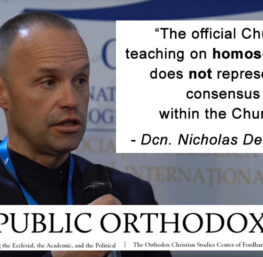FrontPage Mag | Nicholas G. Hahn III | Jan. 24, 2008
If you were to tour DePaul University’s campus asking students about free speech, you would notice the hesitation in their answers. For the past couple of years, the DePaul administration has earned a reputation as a foe of controversial ideas, especially those that offend or challenge the status quo. This has tarnished DePaul’s academic standing as a quality institution. To remedy this problem, President Rev. Dennis Holtschneider created a Free Speech and Expression Task Force and charged it with creating a policy for free speech that would hopefully rebuff any claims that DePaul isn’t a friend of the free marketplace of ideas.
I was appointed to this Task Force as the only conservative, in part because my student organization, the DePaul Conservative Alliance, tested the limits of free speech on this sensitive, politically correct campus, a number of times. Many of the Alliance’s events, such as an Affirmative Action bake sale which was shut down by the administration, provoked questions as to whether the University sufficiently allowed all ideas to be heard.
When the Task Force met, we thankfully opted not to create speech codes. Instead we drafted a document called Guiding Principles of Free Speech and Expression. The language of the draft document seemed to open the doors of the University to all ideas––as it should have. It respected “open discourse and robust debate” and at the same time remained “open to a broad range of ideas and opinions” as a way to “create the best conditions for discovering the truth.” Most importantly, it was not patronizing and it respected the “right of listeners to respond with their own expression, or choose to turn away.”
Before releasing the document to the University community, however, the Task Force wanted to hear preliminary feedback on its work. The President’s Diversity Council––a bureaucracy that oversees racial correctness on campus––jumped at the opportunity to tell us our Principles were worthless because no “person of color” was involved in drafting the document. The bullying worked. We decided to add members to our Task Force who were “of color” so we could head-off any future run-ins with the Diversity Council.
Our new members promptly argued for a serious departure from the model of free speech the Task Force had previously drafted, and just as quickly succeeded in their efforts. I was witness to the undoing of our Principles and the idea of a university itself. I was told that skin color mattered more than ideas in a discussion concerning free speech, and that ideas which offended persons of color “silenced” them and thus curtailed their free speech. I was told that the word “truth” is “offensive” and would “alienate” members of the DePaul community. The idea that human dignity is “God-given” was too “excluding.” Those who are excluded or “marginalized” should be given a “third option” to express their feelings because they may feel uncomfortable “speaking in a public forum or not satisfied with walking away.”
A university, in other words, should make everyone feel as comfortable as possible, perhaps a return to the Haight-Ashbury experience these professors miss dearly––no disagreement, no argument, no reasoning, no thinking, no responsibility. Their concept of “free speech” is meant to “protect those without power.” This model of free speech, of course, is not free at all. It is an ideological weapon which is regularly used to further the diversity agenda. A model of “free speech” which involves controlling speech in order to correct perceived injustices of the past is Orwellian to say the least.
. . . more




This kind of activity is one big reason that whites and blacks simply will not engage each other and even attempt meaningful discussions of race–the intimidation factor is just too great. It is obvious that the “diversity” crowd doesn’t want such disccusions either. They are simply angry for anger’s sake and power’s sake.
Martin Luther King had it right–racism is a sin no matter what the color of the person being racist is.
In one generation, maybe two, we have seen a shift in the center of gravity of attitudes toward freedom of speech. Most people used to believe that freedom of speech was of primary importance, even if making use of it could cause hurt feelings. At the same time, we expected people to use good manners and common sense, and we expected that they would be criticized if they did not.
Now people are fearful of the idea of freedom of speech. Exercising it could not only cost someone their job or education, it could bring them to court and even to jail. I suppose speaking one’s mind could always have gotten one assaulted. Now it is increasingly likely the assailant will go unpunished.
I think the reason this has happened is that people have not been willing enough to ridicule those who advocate political correctness. The problem is that this trend is self-reinforcing — a vicious circle. A “positive feedback system”. The more people feel muzzled, the less they are able to resist laws and rules that increasingly muzzle them.
Political correctness is one of the most destructive things out there — and one of the most useful to self-styled agents of change. It magically makes people who disagree with them shut up. Pretty potent stuff.